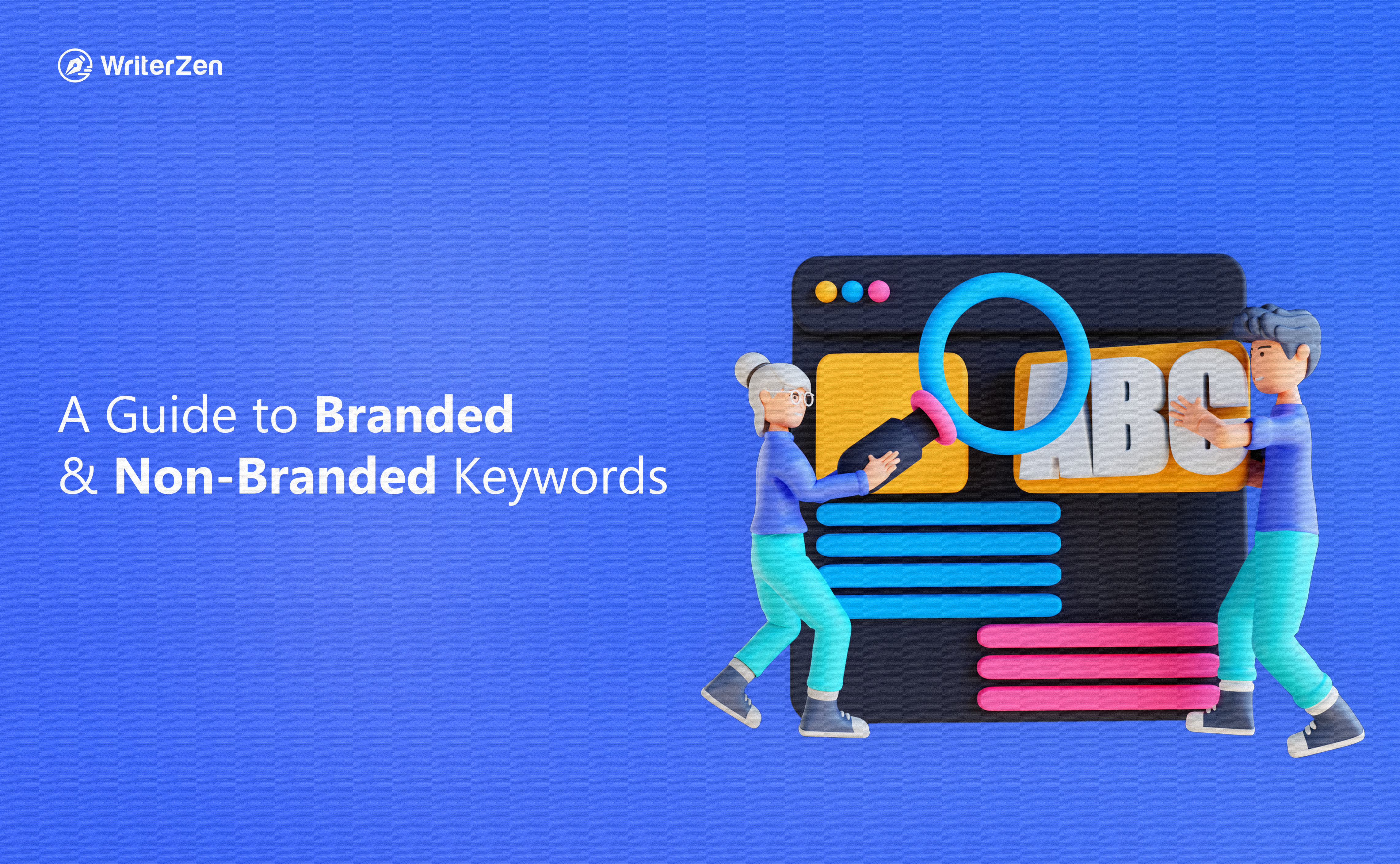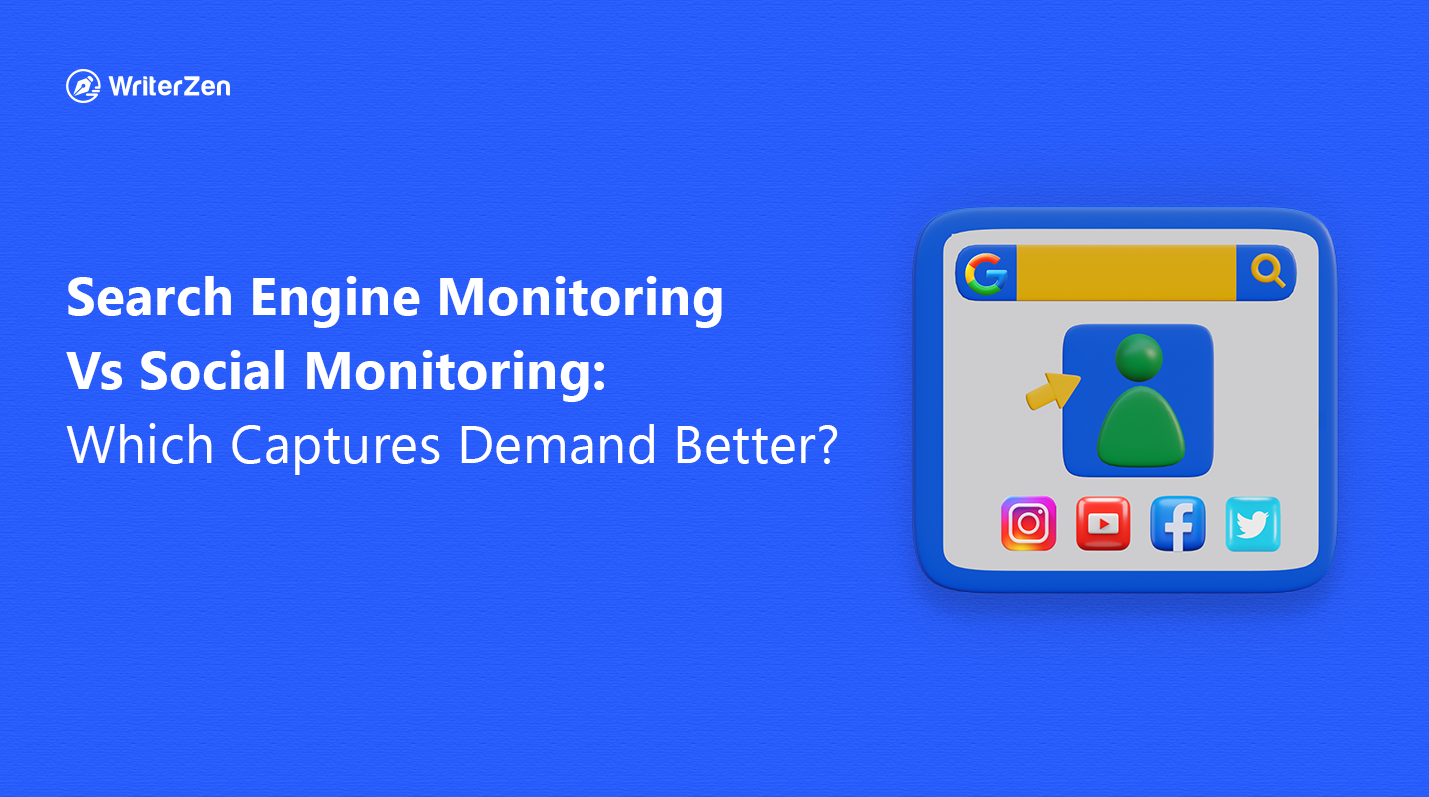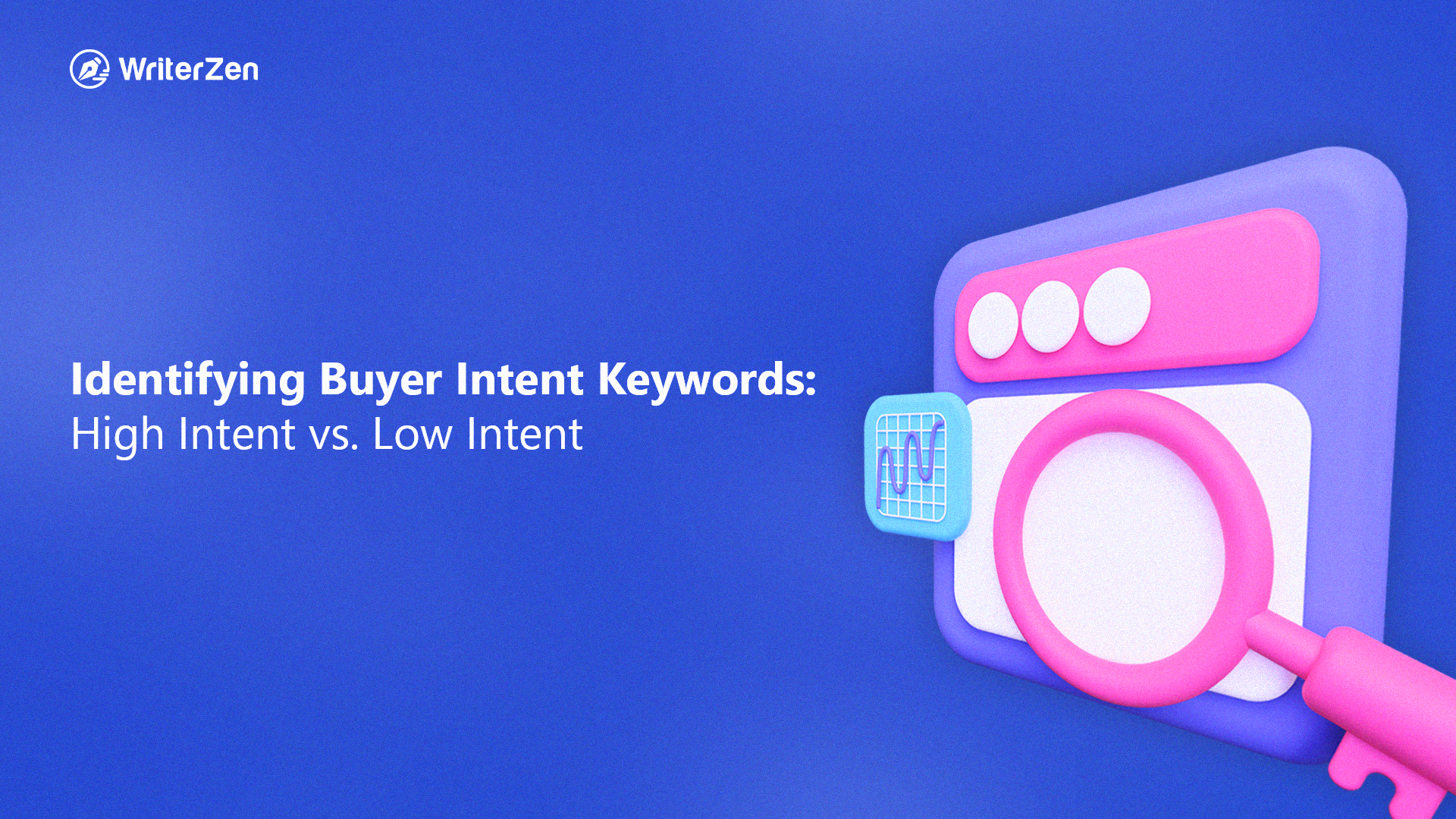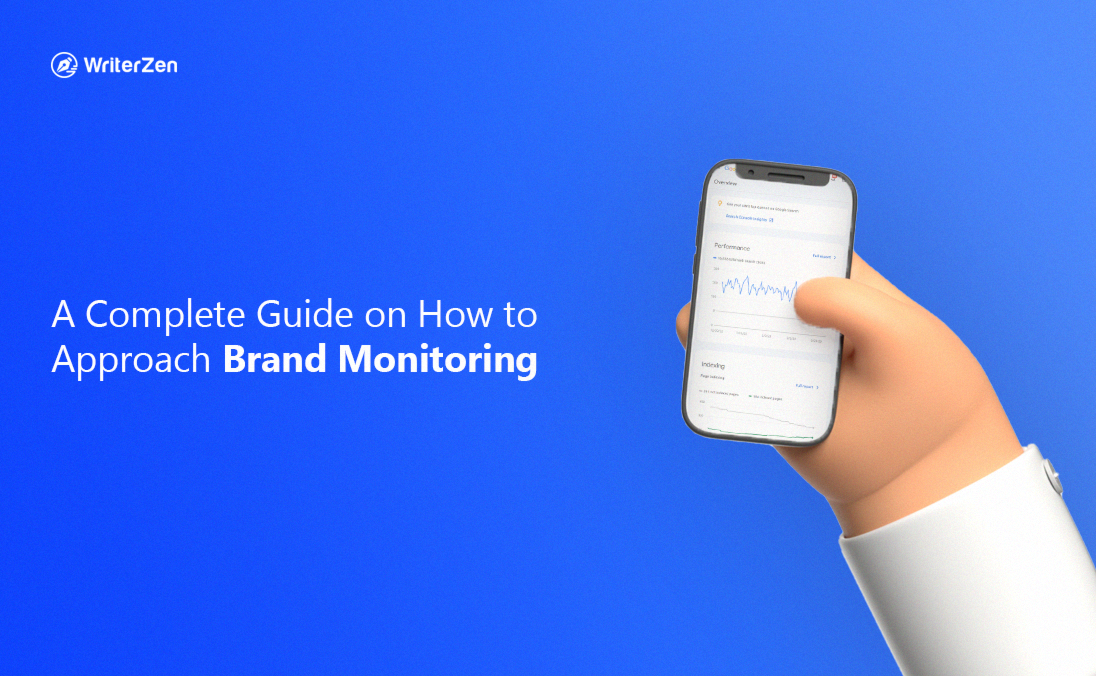Google’s search engine algorithms are always changing. And as a result, marketers must also adapt their strategies on a continual basis.
That being said, most marketers understand the challenges of optimizing search results using keywords that don’t include the brand name i.e. non-branded keywords. But how do you target people with keywords that DO include your brand names—or what we call branded keywords?
Since what keywords people use when searching reveals a whole lot about their intent, let’s take that deep dive and help you understand these two clusters of keywords, what opportunities and challenges crop up when targeting either keyword type, and which one you should care about more!
Let's get started.
What are Branded Keywords?
In the most simple terms, branded keywords refer to search terms that include the name of your brand, product, or other company-specific items. A straightforward example of this could be “apple iphone” or "gucci bags."
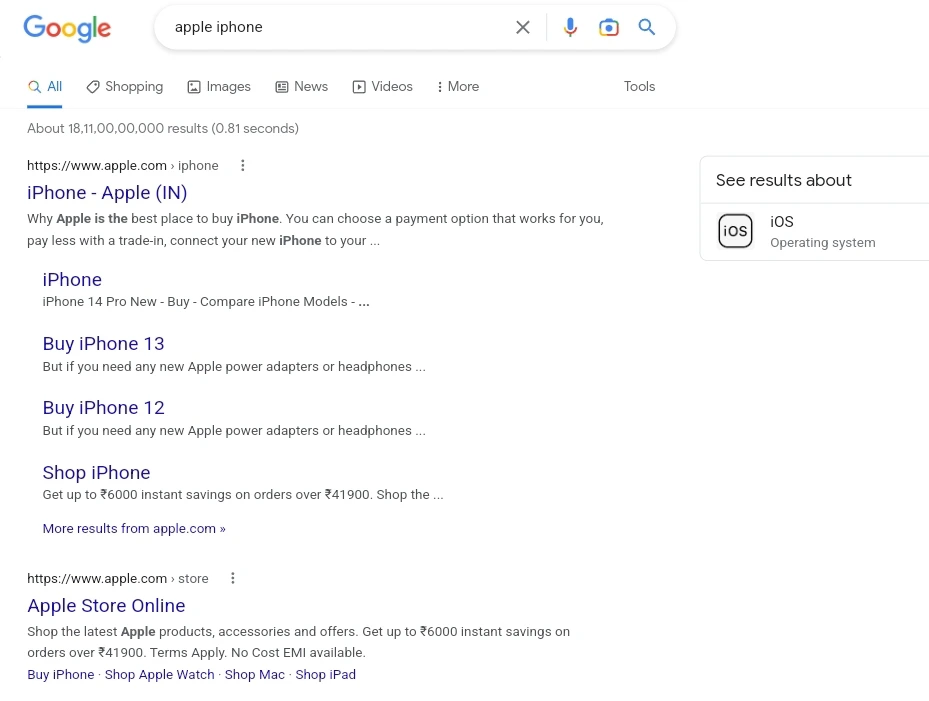
Such search terms are often called navigational queries, because people use these terms to get to a specific website or a webpage. They already know what they are looking for, and just need to be directed towards the right resource. For example, "spotify," "twitter login," or "facebook homepage."
As a result of this, branded keywords have a quite high click-through rate of more than 50%. Needless to say, searchers of these keywords are qualified visitors and are already brand-aware.
As you might have guessed by now, using branded keywords is a great strategy for branding purposes, and you can also count on the lesser competition for these terms.
Simply put, these keywords are perfect for brands with strong brand recognition and aren’t specifically looking to attract “new customers,” so to say.
Some well-known examples of branded keywords that will be obvious to you whenever you encounter them online include the following:
-
Intel: Intel meets consumer needs using an array of keywords, including branded keywords. You must have come across the phrase “Intel Inside,” which is a slogan they go by. This slogan is a branded keyword—which Intel promotes on other channels, too—to establish a wide-ranging presence.
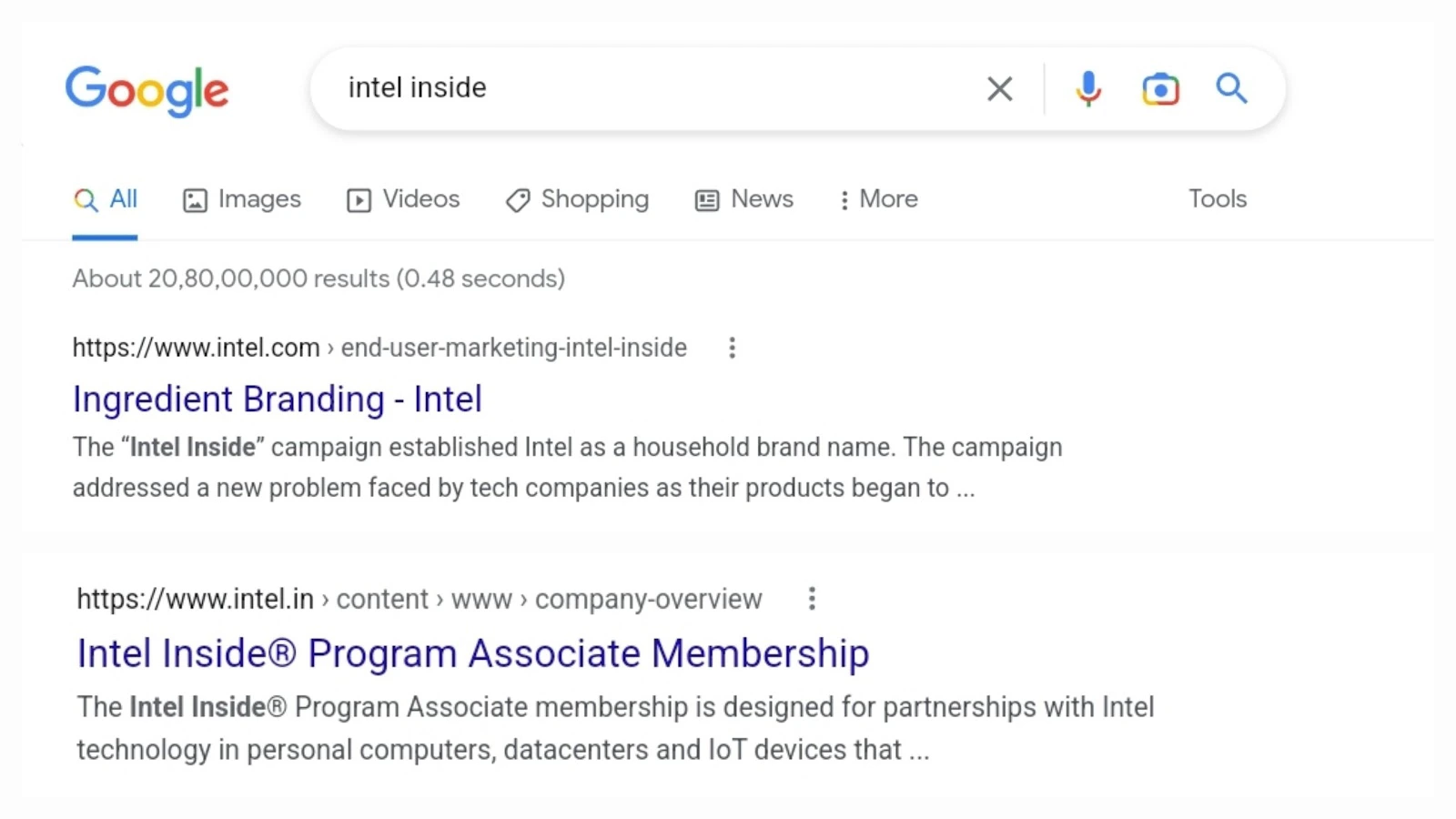
-
Bajaj: “Bajaj fan” is another keyword customers in the decision stage of their journey are bound to encounter when looking to purchase fans online.
This is a branded keyword Bajaj uses to emphasize how their product is superior to others in the market—thereby providing that last-minute reassurance to nudge customers toward a purchase. Since people know the brand already, the keyword provides fruitful results.
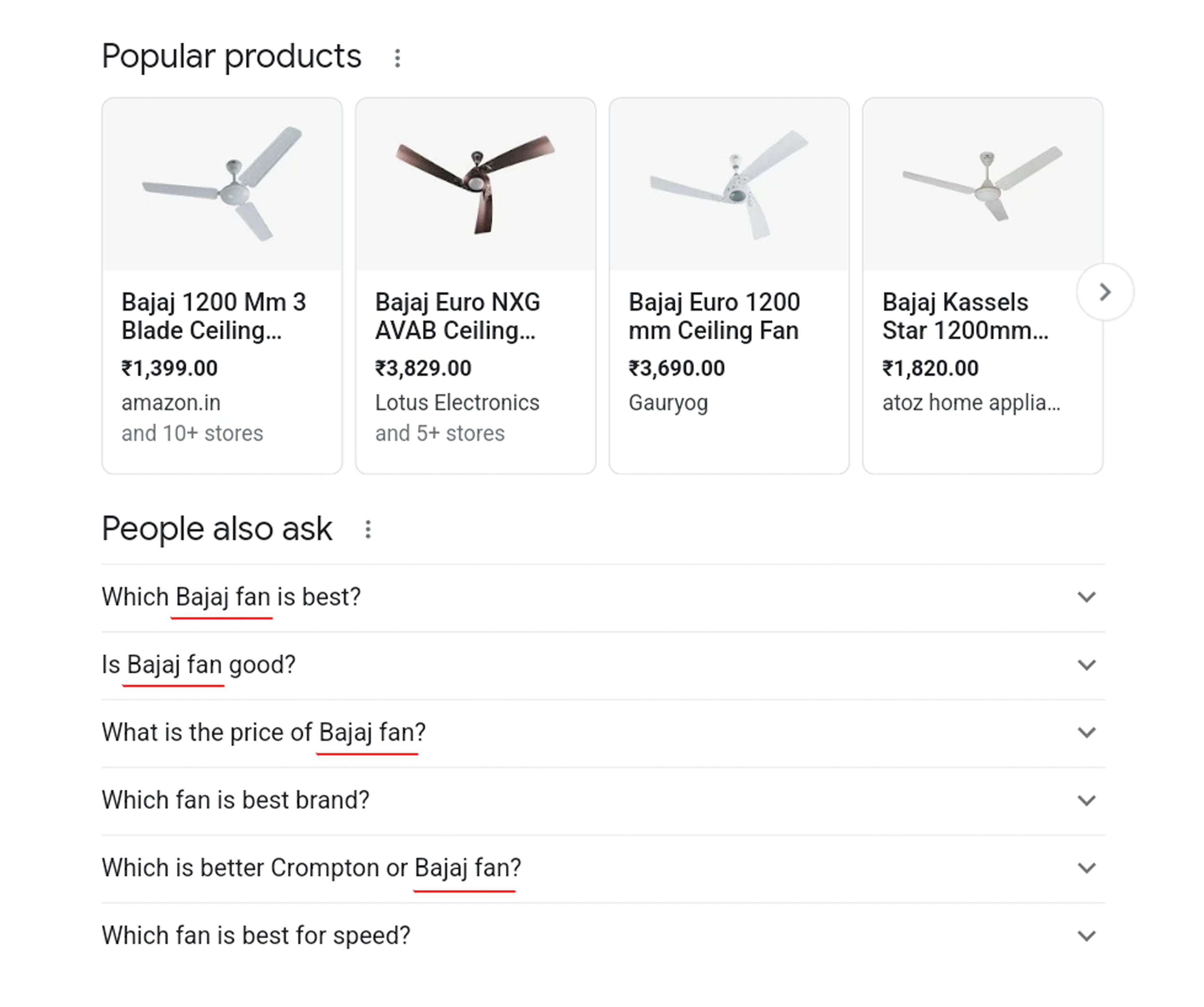
Note: Your branded keywords should have the name of your brand.
For example, if you have an e-commerce store called “ShoeCo.” which sells shoes of other brands, say Nike or Puma, your branded keyword should be “ShoeCo shoes,” “ShoeCo boots,” and so on—NOT “nike sneakers” or "puma boots".
While the latter set of keywords does refer to a brand, it is not the brand we want to optimize search results for.
But then, where does the search volume for branded keywords come from?
It's the result of all your marketing efforts, with the great help of SEO—which means performing well on ranking for non-branded keywords.
What are Non-Branded Keywords?
Non-branded keywords are phrases that don’t contain your company name. You use them to attract new visitors to your site by advertising your products or services and meeting potential customers.
Non-branded keywords are beneficial for almost all kinds of businesses looking to attract more leads. Needless to say, because these are non-branded in nature, there is also higher competition.
For example, think of the keyword “Digital marketing agency” — there are tons of agencies online trying to optimize for this exact keyword.
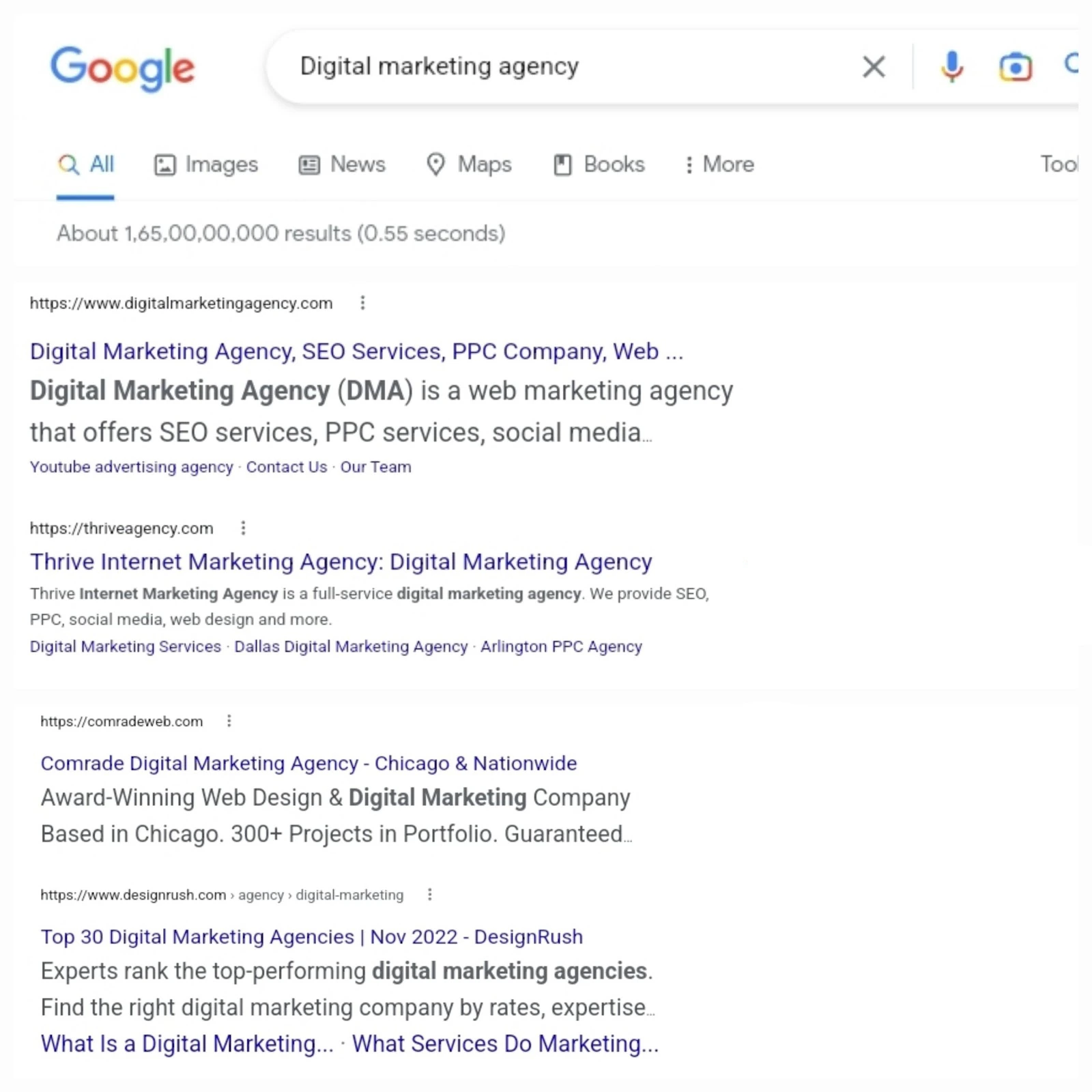
It is a non-branded keyword that communicates more about what the brand does and less about the brand itself.
As a rule of thumb, non-branded keywords give you more scope to play around with keywords and help you narrow your search terms to specific phrases your users are looking for.
For example, "budget smartphones," "pizza outlets," "best chinese restaurants near me," "top law firms," "best graphic designers," etc.
If your business is new, you may want to use non-branded keywords because they’ll help you reach a wider audience.
With branded keywords, you will only reach customers who already know about your business. Yes, they are likely your loyal customers, but it's important to boost your reach and visibility if you hope to make your company profitable.
Opportunities and Challenges When Targeting Branded and Non-Branded Keywords
As you must have figured out by now, both branded as well as non-branded search terms have their use cases and are equally relevant to your keyword research strategy.
That said, both of these types of search terms come with their own sets of opportunities and challenges.
Branded Keywords
Here are some of the striking advantages of using branded search terms to optimize your brand’s search engine presence:
-
Relatively lower competition: As mentioned early, branded keywords, by definition, use brand names in the search phrase. As a result, there is relatively very low competition for these keywords.
-
High click-through and conversion rates: Most of the users that search for branded keywords are familiar with your brand and likely to perform an action, such as visiting your website, downloading a PDF, making a purchase, etc.
ZenTip: Make sure you leverage the opportunity to maximize conversions by creating attractive, high-quality landing pages that give insight into current offers, discounts, etc.
-
Accurate consumer targeting: With branded keywords, you can target a whole array of consumers. This includes your current users, the people who are considering getting to know your brand, the news press, and even fans of your brand who just want to keep track of what your brand is up to.
-
Other miscellaneous yet useful benefits: Depending on your branded search query, keeping an eye on how these keywords are performing would help you make relevant marketing decisions, understand your user’s core needs, manage a good brand reputation, and monitor competitor performance.
Needless to say, using branded keywords when you should instead have opted for non-branded keywords is going to have a few disadvantages, too. Some of the disadvantages that you must know beforehand include:
-
Very low search volume: This is especially true if your brand is new, and your consumers don’t have a relatability factor with your brand yet; they might not even know your brand name to perform such a search. In this situation, you might find very low search volumes for the branded keywords that you wish to target.
-
Limited audience: One of the biggest issues is that you may only be reaching a specific group of people. Since you’re targeting your own name, you may not be reaching people unfamiliar with your brand.
-
Growing search volume can be daunting: Possibly the biggest challenge of branded keywords is not ranking for them, but growing sufficient search volume for them. You will need to promote your brand extensively to see a significant increase in branded keyword search volume.
-
Your competitors can hijack your traffic: Google will happily go ahead and display results of similar companies when people search for your brand. For example, Wix could bid on Wordpress's brand name to display their own ad when people search for "wordpress." In some cases, your competitors can also rank organically and acquire search traffic that should have belonged to your brand.
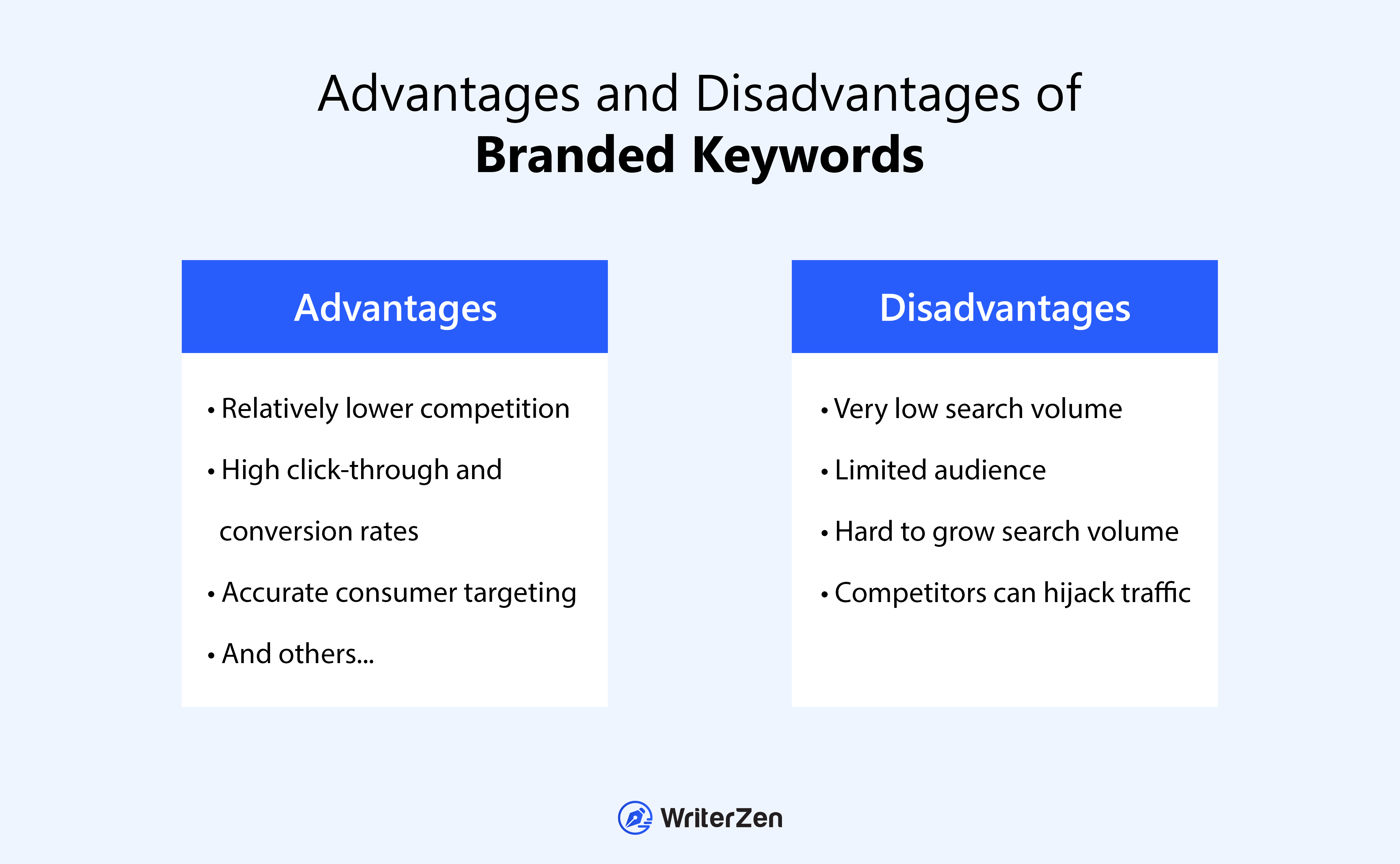
Non-Branded Keywords
Some of the most promising benefits of using non-branded keywords for any SEO strategy, regardless of whether or not your consumers are aware of your brand or not, include:
-
Chances to expand your reach with more keyword options: When you’re not aiming for branded keywords, you have many different phrases at your disposal that you can use.
In most cases, users don’t search for branded keywords unless they are entirely sure who they want—which is not until the decision stage. In this case, you can leverage non-branded keywords to attract potential customers in the problem and consideration stages.
-
Building brand awareness: While this point may seem counterintuitive, it really is not. If you use non-branded keywords to attract consumers to your website, you will slowly start building relationships and relatability with those customers.
Did you know 80% of all online searches are information-seeking? So, for instance, if you sell refurbished electronic items, your customers are likely looking for answers to questions like: "Should I buy a refurbished MacBook?" or "Are refurbished mobiles better than used mobiles?"
Once you provide helpful answers to their queries, more people will slowly start becoming aware of your brand, they'll start trusting you, and you’ll notice an overall increase in brand visibility.
-
Attracting new customers: With branded keywords, you get to attract more or less only the people who already know about your brand. With non-branded keywords, on the other hand, you have a whole array of new customers that you can attract to your products and services.
Next are some of the disadvantages of using non-branded keywords that you should be aware of:
-
Higher competition: Since non-branded keywords are by design generic, many companies and brands around the globe will be competing for the same phrase.
Needless to say, you will face much higher competition for these phrases, and you’ll need to think of a way to maneuver around that. One way to do so is by building authority and trust by publishing high-quality, relevant content that addresses your audience's problem points.
-
Lower click-through and conversion rates: Non-branded keywords don’t bring in direct traffic and conversions the way branded keywords do. So, you might have to make do with this disadvantage when you’re optimizing for non-branded search terms.
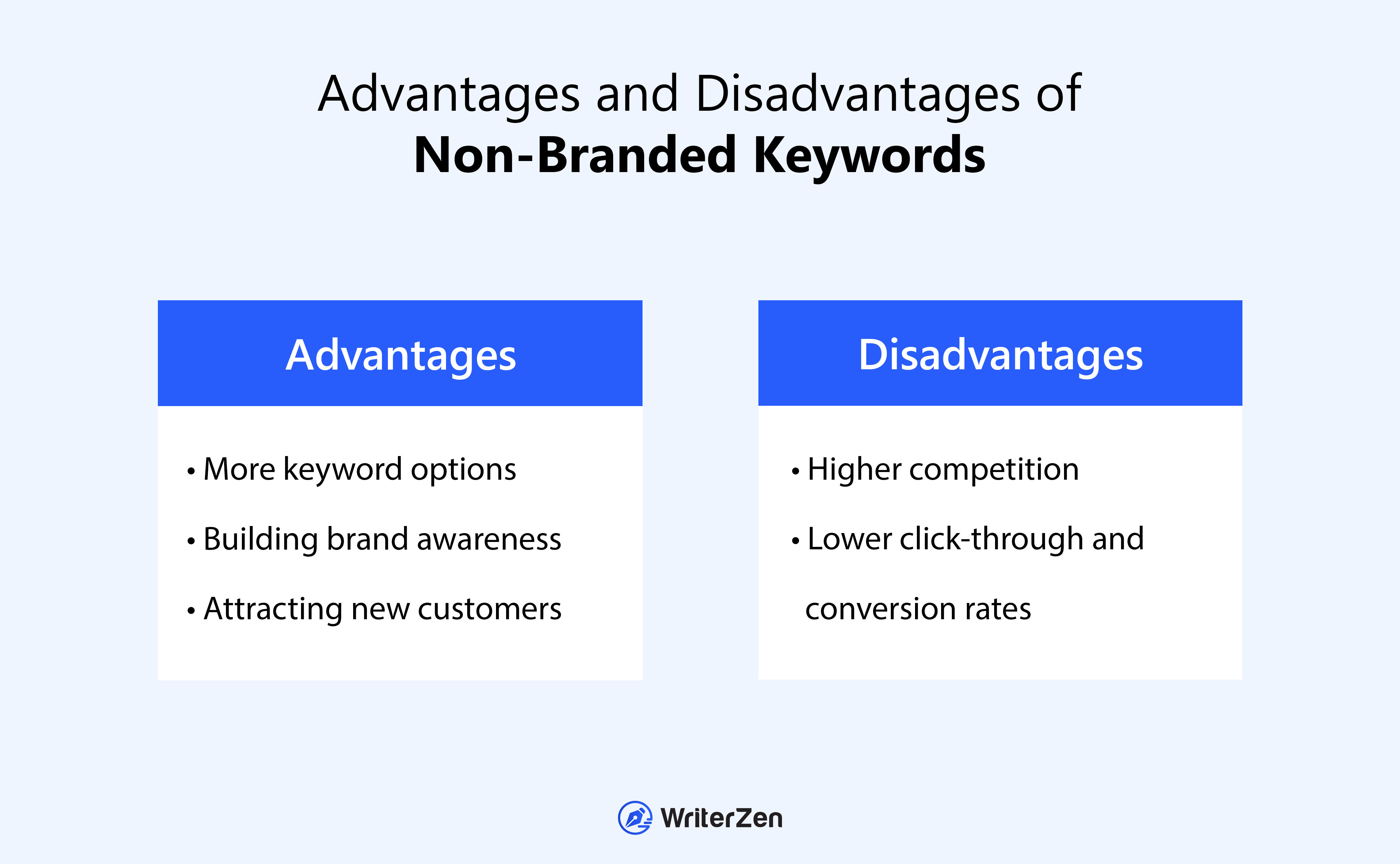
Now that we have understood the main advantages and disadvantages of both branded as well as non-branded keywords, you might want to know exactly which kinds of brands should go for which kinds of search phrases.
For Whom Branded Searches and Non-Branded Searches Need More Attention?
Before we get into this distinction, it is important to reiterate that both of these keyword types are important for your SEO strategy. There is no way you can completely disregard one of these types of keywords for the other type.
That said, there are some situations (and brands) that should focus more on branded keywords, while others should focus more on non-branded ones.
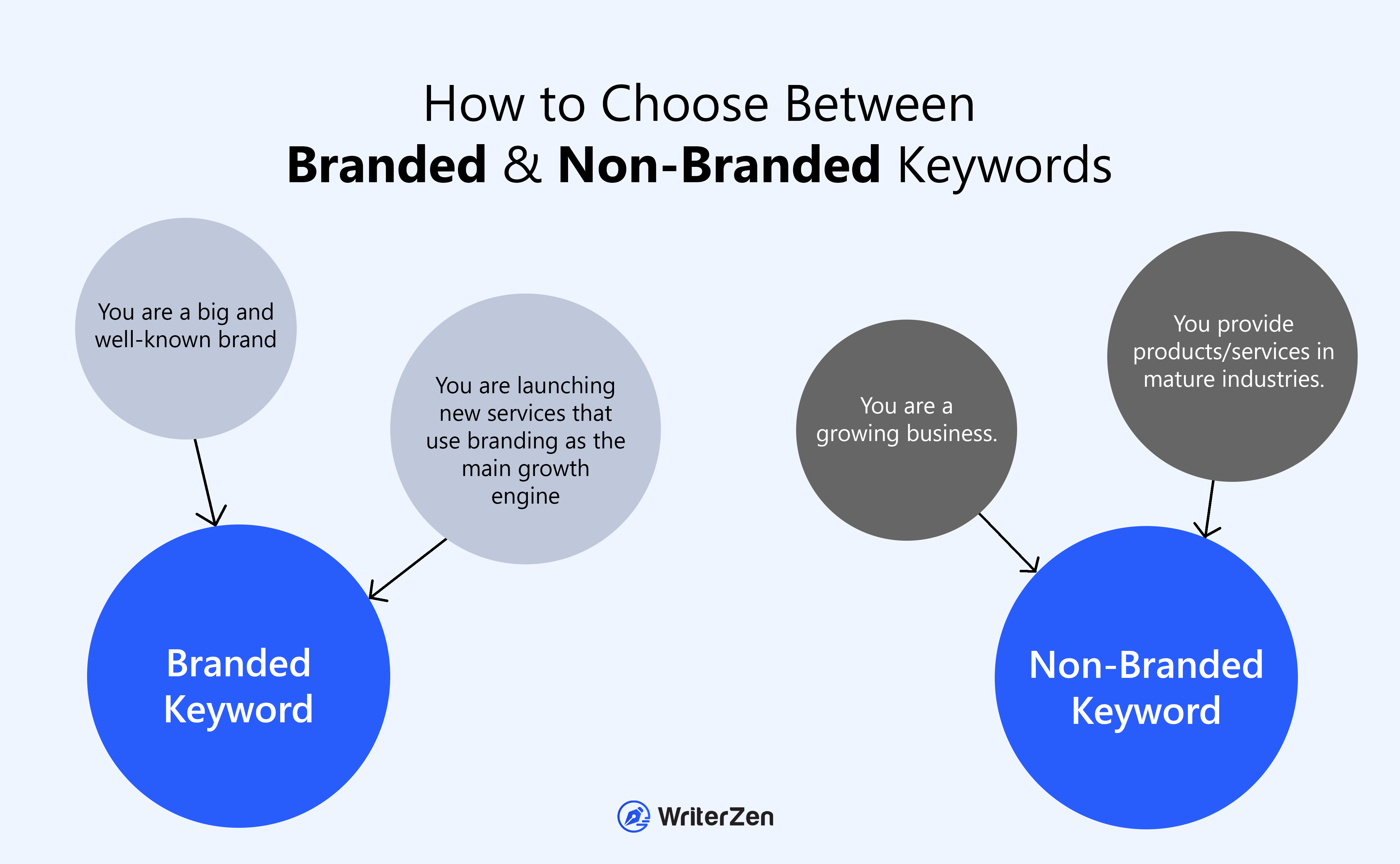
Which Business Types Need To Utilize Branded Searches
You should extensively use branded search terms if:
-
You are a big and well-known brand. If your brand has already established relatability and loyalty with your customers, using branded search terms is your best bet to achieve better results. For example, Nike, Apple, Google, etc.
-
You are launching new services that use branding as the main growth engine. Using branded keywords, in this case, will increase your chances of attracting relevant people in a shorter span of time.
Who Should Compete on Non-Branded Searches?
Here are some examples of those cases:
-
You provide products/services in mature industries. If your offerings are in a mature industry like hospitality, travel, F&B, e-commerce, and so on, you might want to optimize for non-branded search terms. This is simply because people are more likely to search for “hospitals near me” than “Fortis near me.”
-
You are a growing business. If you are a small business aiming to grow, you should start by optimizing for non-branded search terms.
So, Which One Is It Going To Be?
The correct answer to this above question is – a careful mix of both.
Hopefully, the discussion in this article around branded as well as non-branded keywords has given you a clear understanding of when to use which!


